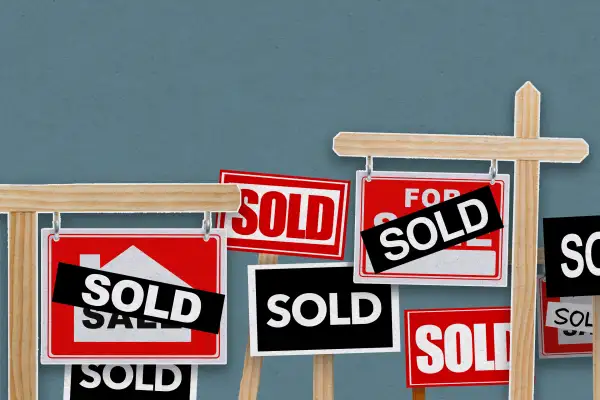Housing Market Madness Continues as Buyers Snatch up Homes at Record-Fast Pace

If you were hoping the housing market might cool off this winter, you’ll have to keep waiting.
In some ways, the 2022 real estate landscape is shaping up to be even more competitive than it was last year.
Homes in the United States sold at the fastest January pace ever, according to data from Realtor.com. The typical home was on the market for just 61 days. That’s 10 days less than in December and 29 days less than the typical time spent on the market between 2017 and 2020.
Some of the country's hottest markets saw homes being snatched up at an especially fast pace. In Nashville, the typical home spent just 29 days on the market in January. Homes spent a median of 35 days on the market in San Diego, San Jose and Denver, and 36 days on the market in Raleigh, North Carolina, according to Realtor.com.
"We're forecasting a whirlwind year ahead for buyers and, if January housing trends are any indication, 2022 competition is already heating up,” Realtor.com Chief Economist Danielle Hale said in a statement. “Homes sold at a record-fast January pace, suggesting that buyers are more active than usual for this time of year.”
She added, however, that things look a little different on the sellers’ side, with new listings declining in January thanks to uncertainties caused by the coronavirus and delays of construction materials caused by the supply chain crisis, among other factors. Active listings declined 28.4% in January compared to a year earlier.
Together, the huge influx of interested buyers and shortage of inventory means that homes are increasingly hard to find and increasingly expensive. The median listing price soared 10.3% on a yearly basis in January to $375,000, Realtor.com found. The prospect of rising interest rates is likely to fuel the madness, at least in the short-term, as buyers look to lock in their mortgages before rates go up.
Understandably, most Americans are feeling negative about their prospects. One recent report from Fannie Mae found that 70% of Americans believe it’s a bad time to buy a home. Among millennials and Gen Z, that number shot up to 83%. Just 25% of people said it’s a good time to buy — a record low.
More from Money:
Most of America Thinks It's a Bad Time to Buy a House (and They're Probably Right)
Why Investors Are Scooping up So Much Real Estate — and How Regular Homebuyers Can Compete

